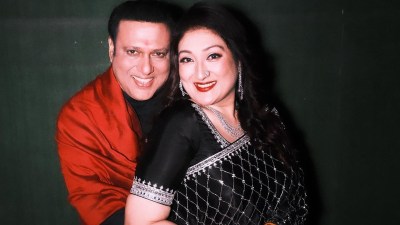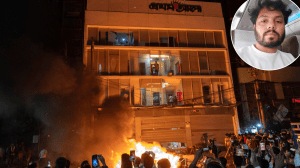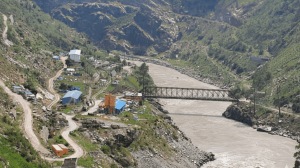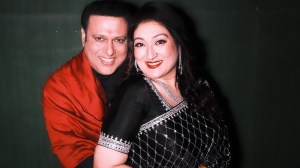BJP takes up task of neutralising Muslim hostility
The political opinion is now veering around to the view that elections are on the cards before the calendar year is out. The two major part...

The political opinion is now veering around to the view that elections are on the cards before the calendar year is out. The two major parties, the Bharatiya Janata Party BJP and the Congress, are preparing themselves for it.
The BJP stands to gain from elections a few momths down the line for the simple reason that the United Front UF would discredit itself further, and the chances of cracks appearing in the Congress-UF relationship increase.
The split in Janata Dal JD will help the party increase its votes in Bihar, Karnataka and Orissa, the three states on which it can now be expected to concentrate its energies, but may not enhance the number of seats substantially if elections are held now. But the picture may change a year later as the BJP is gaining by the day.
The Congress is not able to stem its erosion at the ground level and backing the UF robs it of an opposition role. Its leadership may therefore plump for early elections because the present configuration of political forces makes it virtually impossible for Sitaram Kesri to head a coalition in the 11th Lok Sabha.
The Left, Telugu Desam Party and Asom Gana Parishad AGP will find it very difficult to lend him overt or covert support.
Kesri may well gamble to acquire a single largest party status to be able to form a Congress headed coalition. He is expected to augment the Congress strength by bringing in a section of the JD, and someone like Ramakrishna Hegde, which will help it in Karnataka.
He has played the tribal card in Madhya Pradesh by the appointment of tribals as PCC president and working president. And he is expected to tie up with the Yadavs, Laloo and Mulayam, in Bihar and UP. But this time Kesri will not make the mistake of pulling the rug himself. He will shoot off the shoulders of others, and make moves which sharpen the conflict within the UF so that it can collapse under its own weight.
On its part, the BJP realises that gaining another 40-50 seats is easier said than done 8212; unless there is a wave in favour of the party.
The response to Advani8217;s Swarna Jayanti Rath Yatra has been mixed, though the BJP President has activated the party8217;s cadre, seized from the Congress an initiative it should have taken, and demonstrated that the BJP is interested in going to the people while the Congress is involved only in backroom manipulations.
The most important plank of the BJP8217;s poll strategy today is to try and reduce the hostility of the Muslims towards it. In recent weeks, the party has held national and regional level meetings with Muslims, including their Ulema8217; to underscore the message that it is not anti-Muslim.
At a meeting organised by Bharatiya Yuva Morcha in New Delhi last month it was none other than Uma Bharati, who along with Sadhavi Ritambara is remembered for spouting anti-Islamic venom only six years ago, who did not go in for the rendering of Vande Matram lest it offend the Muslims present.
And she was pulled up by party Vice President Sikander Bakht for assuming that Muslims would object to it.!
Advani, considered a hawk, has moderated his position. His statement that minorities could have differences with the BJP on the abolition of Article 370, or uniform civil code or illegal immigration, but they should not view its stand on these issues to be flowing out of an antipathy towards them is significant.
The party is giving contracts to Muslims in many places where it has captured municipal corporations. And now its minority cell is planning a massive rally of Muslims in Lucknow next month.
And surprisingly, the BJP has been silent on the reported positioning of Pakistani missiles on the border, something it would have otherwise screamed about. One can only surmise that it does not want to do anything which might provoke Muslim opinion.
There is a realisation in the BJP that it cannot hope to govern India without neutralising the hostility of the Muslims. All this is not to say that the Muslims will fall in the BJP lap. The party8217;s real target is not the Muslim vote, at least not in the coming electoral round, but the regional parties and the floating liberal Hindu vote.
No regional party was prepared to touch the BJP with a bargepole in May 1996. Even groups like the TDP, AGP found the Congress, their main adversary, preferable to BJP because they did not want to antagonise their Muslim voters. Neutralising the hostility of Muslims would therefore make it easier for regional outfits to shake hands with the BJP.
Making conciliatory gestures to the Muslims might make the party more acceptable to the liberal Hindus who have been uncomfortable with the BJP rhetoric. After all, for all its pro Hindu stance, only 25-30 per cent of the Hindu population in the country has been voting for the BJP. The party cornered 20 per cent of the votes in the last elections, and since this is mostly made up of Hindus, it got one fourth of the total Hindu vote.
The recent attempt by the Rashtriya Swayamsevak Sangh RSS to distance itself from the BJP is another straw in the wind. This was the thrust of many speeches at the recent conclave of the Sangh in New Delhi.
Unlike 1980 or 1984, when the RSS had lent its support to Indira Gandhi because of her Hinduward8217; shift and to Rajiv Gandhi because of Sikh terrorism, the Sangh has no choice today but to support the BJP because no other group fits the bill of being empathetic to its beliefs.
The recent noises by the RSS stem from a concern about the impact the BJP8217;s powerward8217; march on its own cadres and the desire for a greater say in who gets the BJP tickets, but it also seems to be a tactical ploy to give a push to BJP8217;s 8220;woo Muslims8221; campaign. The Muslims see the Sangh as being more inimical to them than the BJP.
The party8217;s pro-Sikh policy has yielded it rich dividends in Punjab and it is now trying to consolidate that gain by backing the candidature of S S Barnala for Vice President.
The BJP went out of its way make a pro-Dalit point by filing the nomination papers of K R Narayanan for the presidency. A major challenge before the party is to retain its upper caste vote bank in UP while taking advantage of its alliance with the BSP. The battle in UP has now shifted for the allegiance of the upper castes and Mulayam Singh Yadav is making a determined bid for it.
The unpredictable Kanshi Ram-Mayawati duo will probably be the BJP8217;s trickiest customer. Atal Behari Vajpayee seems to be toying with the idea of letting Mayawati continue as Chief Minister for longer than six months for this could facilitate a national alliance with the BSP.
But that Advani is opposed to the idea was clear from his unequivocal declaration at virtually every meeting in UP during the recent rath yatra that Kalyan Singh would take over as Chief Minister.
One thing appears clear 8212; the next government will also be a coalition. And compromise will be its buzzword with ideology having less and less of a role.
- 01
- 02
- 03
- 04
- 05































